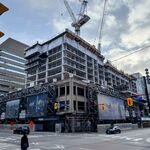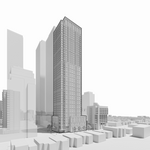txlseries4
New Member
From googling, the data in the chart is from research published in 2011 that calculated the data from pedestrian fatalities in Germany between 1999-2007, so I'm curious how different that curve would be today given how much the design of vehicles has changed since then. There's been a significant increase in ownership of SUVs and trucks according to StatCan data (chart below), which is receiving attention for the danger they pose to people on bike or foot, like this from NPR: Taller cars and trucks are more dangerous for pedestrians, according to crash data.If bike lanes are banned, I think we shall expect a sharp increase in the number of cyclists choosing the sidewalk, and the anti-bike crowd will only have themselves to blame, full stop (although the only way they might actually get the message is if a large number of cyclists protested the anti-bike & anti-bike-lane sentiment by all taking the sidewalk at the same time, as a group, which might not exactly be good PR for them).
To add to this, I just watched this video, which includes this graph, specifically pertaining to cars (courtesy of Not Just Bikes):
View attachment 611261
Not only did I not expect it to be a curve akin to the inverse tan function or cubic root function (as opposed to more like a straight line), but I definitely did not expect the 50% point (and point of inflection) to be all the way at the 80 km/h mark, I would've thought it to be well before that.
All the more reason to have separated bike lanes.





